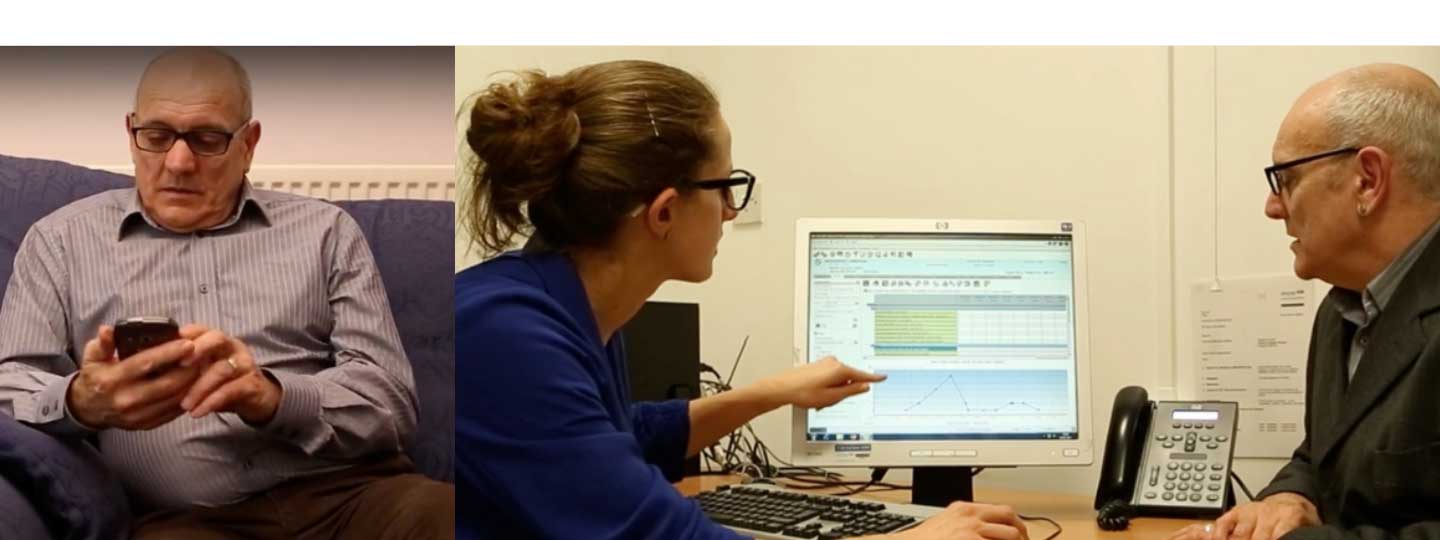How can a smartphone app help people with rheumatoid arthritis?
01 August 2021
Many people with arthritis experience a range of symptoms including persistent pain and fatigue, that can change day to day and be difficult to manage.
We’re supporting researchers at the University of Manchester to develop a smartphone app to help people with rheumatoid arthritis track their condition.
The REMORA (Remote monitoring of Rheumatoid Arthritis) app will allow people to share their daily symptoms between clinic appointments. The data will be recorded on their hospital record and used to help in conversations between patients and healthcare professionals about treatment. If successful, this will be a valuable symptom tracker which can be incorporated into routine electronic health records.
Rheumatoid arthritis affects around 400,000 adults aged 16 and over in the UK.
Rheumatoid arthritis can get worse quickly, so early diagnosis and treatment are important. Symptoms vary from person to person and often fluctuate with time. People with rheumatoid arthritis can also experience flare-ups, where their symptoms get worse.
Treatment for the condition is guided by people reporting their symptoms, which can be difficult to manage when symptoms fluctuate considerably. It can also be difficult to remember good days and bad days, as people may wait months between clinic appointments.
How can a smartphone app help?
REMORA enables people to record their daily symptoms can help people with arthritis to accurately track how their condition has changed between clinical appointments.
Professor Will Dixon, lead researcher on the study said “The primary motivation is to help with the opening question at many outpatient consultations: ‘How have you been in the last six months?’ The app allows patients to track their symptoms each day, with the data then integrated into the electronic health record and summarised as a graph”
Having access to this data can allow for more personalised consultations for people with rheumatoid arthritis and help to encourage joint decision-making. The data may also help a clinician spot trends in symptoms and identify the right treatment.
What has been found so far?
During a pilot study of REMORA jointly funded by Versus Arthritis and the National Institute for Health Research (NIHR), people reported symptoms over a period of three months via the app.
The data was made available to the doctors, and graphs following symptoms over time were used during consultations. The study has revealed symptom tracking in this way had some key benefits:
It provides the bigger picture of rheumatoid arthritis over time, capturing changes to symptoms and disease activity that might have otherwise been missed between clinic appointments.
The tracking helps clinicians spot trends – possible links between different symptoms (such as fatigue and pain) could be seen, as well as the influence of lifestyle factors such as diet and physical activity.
People feel empowered to organise and self-manage their own health, and to make shared decisions with their healthcare professional.
Professor Dixon added “This clearer picture of disease has the potential to lead to more informed and better decision-making, and therefore to better clinical outcomes for patients.”
What’s next for this research?
Researchers will continue working with people with rheumatoid arthritis to help address some of the remaining unknowns about symptom tracking using REMORA.
They aim to develop the app so that it can track symptoms over a 12-month period and hope this will allow clinicians to identify patterns of symptoms over time.
The project will include producing materials to help people self-assess symptoms, as well as training for clinicians to use the data. It’s hoped that symptom tracking in this way will lead to improved care compared with usual care, and that the results will encourage uptake of this technology into clinical practice.
This exciting research project is being funded by the National Institute for Health Research (NIHR) and Versus Arthritis and will run until 2025.
Get the support you need
- If you would like to talk to someone, you can call our free helpline on 0800 5200 520.
- Talk to our arthritis virtual assistant, 24/7.
- Join our online community.
- Stay in touch and follow us on Twitter, Facebook and Instagram.